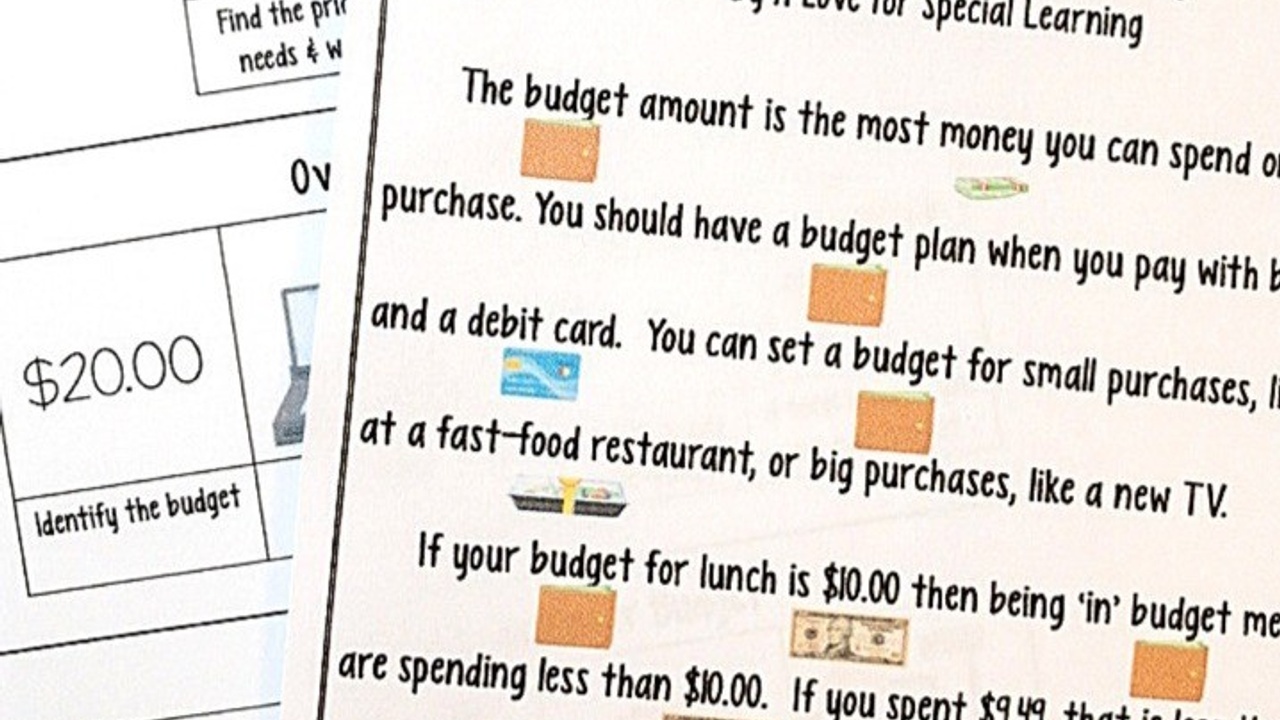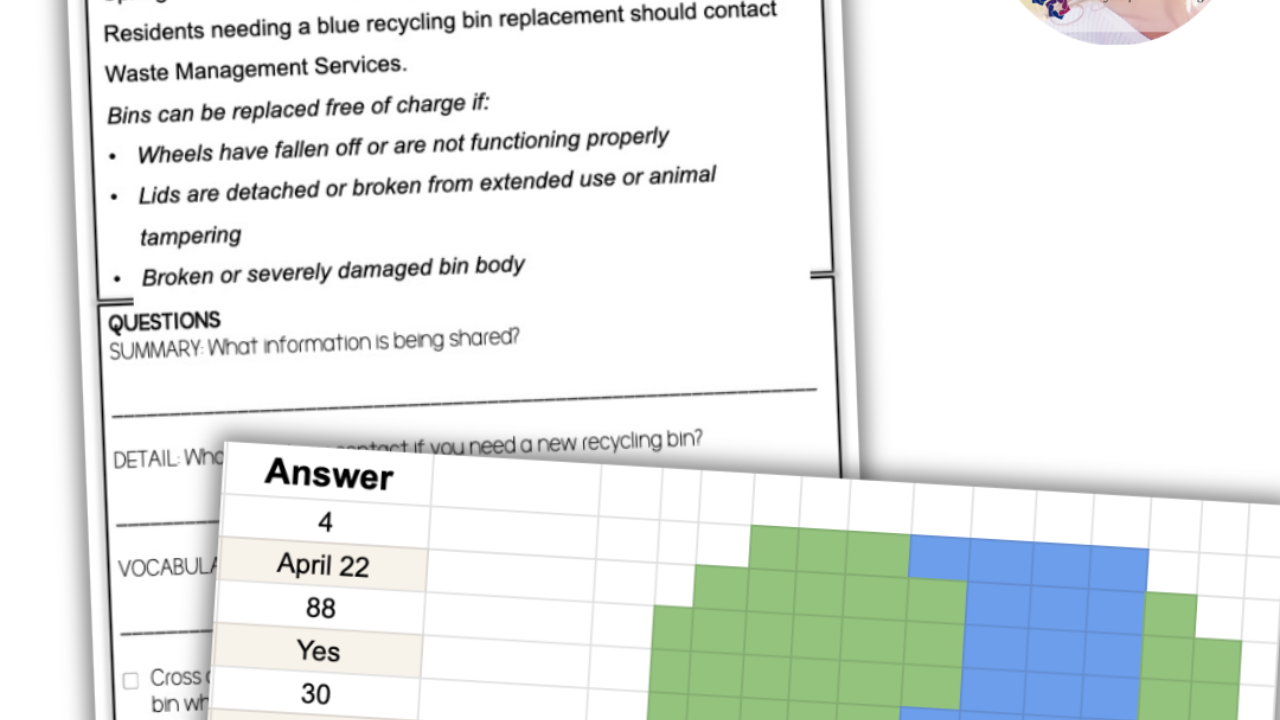How To Teach: Budget Skills
Mar 21, 2022
Importance of Teaching How to Budget
Knowing how to budget, money specifically, is how someone strikes the balance between getting both their needs (food, water, shelter) and wants (movie tickets, game tickets, new phone) met. We all wish we had endless amounts of money to spend, but that isn’t realistic and, typically, isn’t realistic for our students. Being able to manage their own money is a true test of budget. Even if they don’t manage all of their own money, they are likely given a budget by someone else.
-What a budget is
-How to spend within a budget
-What to do if a purchase is above the budget
-How to approach a purchase when you have a budget
-Common terms around budgets and spending
Why Focus On These Skills
Students who struggle to make purchases within a set budget are more likely to experience frustration (they can’t get what they WANT), disappointment (they see their wants as NEEDS), and embarrassment (if they have to walk away from a purchase or their debit card is denied). While no teacher aims for students to experience these feelings, especially in the community, staying within a budget is more than just a math skill, it is also a skill in decision making and self control.
When To Teach
This topic can be at the top of the teaching schedule, or can be embedded when students are experiencing more purchasing and buying scenarios. It is probably one of the ‘most important’ skills for students to learn, but there also needs to be context to the learning, so fit it into your teaching schedule when students would have high levels of budgeting opportunities.
I’ve created a complete lesson unit of materials for teaching this topic. The materials are comprehensive (5 full lessons) and most appropriate for life skill lessons at the middle school, high school and transition level students. Below are some lesson unit highlights!
Students will add the prices to find the total and compare it to an amount in cash.
Students will add the prices to find the total and compare to an amount in numbers ($10.00)
Students will identify if a total is under or over budget.
Lesson Vocabulary
Add, afford, budget, compare, enough, in, less than, overspent, tax, under
-
Pre and Post assessment
-
1 page narrative explaining the skill with and without visual text supports (to incorporate functional reading)
-
5 skill practice activities to learn and/or reinforce the focus skills
-
Game for students to practice their skills (because learning is fun)
-
Boom Cards for practice or assessment
-
Student learning reflection worksheet (thumbs up or down)
-
Encouraging on-topic quotes (use as a classroom poster or starter for each class period)
-
5 strategies for success (tips for being successful with the focus skills)
-
Coloring page with on-topic graphics
-
Skill mastery certificate for positive recognition and reinforcement
-
Data collection sheet on specific focus skills
-
Homework sheet to encourage students to practice the skill outside of the school setting
-
Word search of key vocabulary terms
-
Visuals for focus skills with age appropriate colors and graphics
Ultimate Goal
Self control. Period. If a student can exercise self control (and decision making) when they are spending money (especially if they are using a debit card and it is more abstract), then they will have great money management skills long term. Being able to recognize numbers that are higher or lower (number sense) than a set budget amount is also key to staying ‘within’ the budget!
Links to Curriculum


















